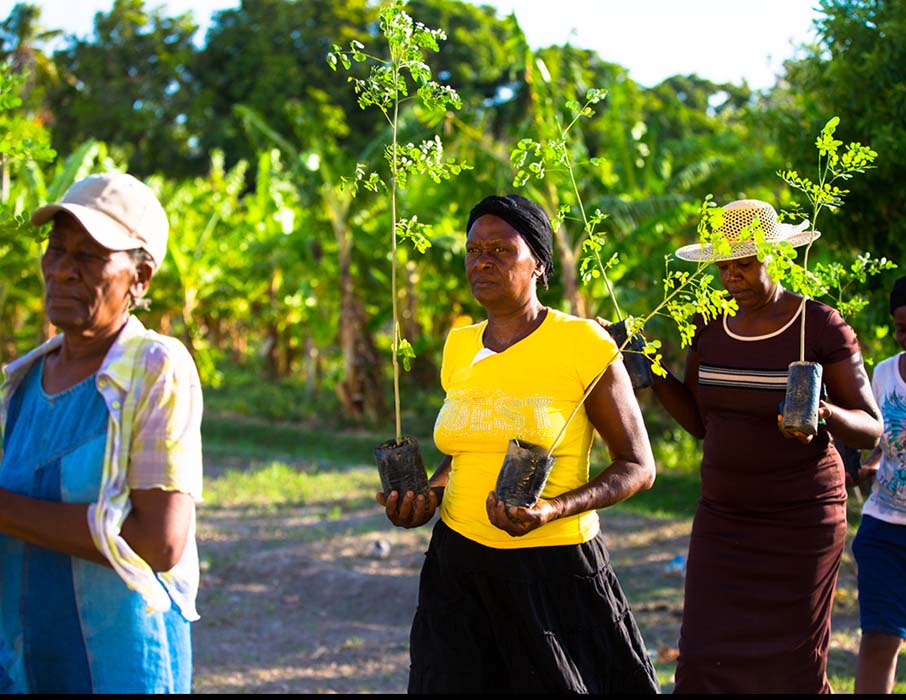
Smallholder farms are those under 2 hectares, or 5 acres, operated by family members—wife, husband, kids and often grandparents.There are currently around 500 million smallholder farms throughout the
developing world. Adding up the people who live and work on those farms,t he total comes to 2.5 billion, or one third of the entire global population.Collectively they have been marginalized and ignored for the past half century, but people are gradually awakening to the fact that smallholders can play a key role in addressing issues such as climate change, food security and gender equality.
In this context I would like to share the work of the Smallholder FarmersAlliance (SFA) in Haiti. Co-founded by myself and Haitian agronomist Timote Georges, the organization has developed a pioneering agroforestry model that engages 6,000 farmers in contributing to mitigating climate change, improving food security and actively working towards gender equality.
Haiti is seriously deforested. At the same time its approximately one million smallholder farms are under-performing, due in large part to the lack of trees that leads to flooding and soil erosion. The resulting low yields puts pressure on farmers to supplement their income by cutting trees to produce charcoal. The result is a self-reinforcing downward spiral.
At the core of the SFA model is the idea of tree currency. Farmers grow, transplant and look after trees in order to earn credits that they can exchange for non-hybrid, open pollinated crop seeds, hand tools like hoes, shovels and machetes, and training in organic agriculture.
What we found when these services became available was that crop yields went up a minimum of 40% and household income between 50 to 100%.And everything, tree nurseries and agriculture, is run entirely on organic principles.
For the farmer members of the SFA, trees are now worth more in the ground than cut for charcoal. We have 30 nurseries around the country and to date the farmers have planted over eight million trees.

Tree currency is now used for more than just seeds, tools and training. Farmers use their credits for participation in seed banks, to obtain livestock, for adult literacy classes and water source upgrades. Tree currency also allows farmers to take part in and benefit from kombits, which is a Haitian creole word for neighbors volunteering to help each other for planting and harvest. It’s a long tradition in the country but the pressure of extreme poverty has eroded it over time.

Women and men, when they farm together, are equal but separate members of the SFA, which meant definitely going against the norm when we started. Women members, through tree planting, get targeted support in the form of micro-loans exclusively for them, along with specialized business and leadership training. And a cardinal rule is that the farmers involved in implementing any of the SFA services have to include a balance of women and men, so that gender equality is becoming an accepted norm. Part of their cultural DNA.Our latest venture involves the Timberland company, the SFA’s founding corporate sponsor. Beginning in 2010, they earmarked their financial support for tree planting. Then five years ago they asked if they could also become a client, and this launched a program to reintroduce cotton growing in Haiti after a 30-year absence. Earlier this year Timberland released its first products made with Haiti-grown cotton, and the SFA is embarking on a major expansion to engage thousands more farmers in the tree currency model... now expanded to include both food and cotton crops.
We feel the SFA agroforestry model developed inHaiti is one that may be worthwhile exploring for application in other developing countries.




